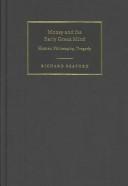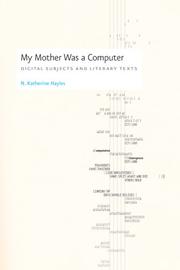| Listing 1 - 3 of 3 |
Sort by
|

ISBN: 0521830605 0521036194 1107138892 0511179243 0511062915 0511306288 0511490534 1280421738 0511203160 051107137X 9780511062919 9780511071379 9780511490538 9780521830607 9781107138896 9781280421730 9780511179242 9780511203169 9780511306280 9780521036191 Year: 2003 Volume: 68 Publisher: Cambridge New York Cambridge University Press
Abstract | Keywords | Export | Availability | Bookmark
 Loading...
Loading...Choose an application
- Reference Manager
- EndNote
- RefWorks (Direct export to RefWorks)
Self-Interest before Adam Smith inquires into the foundations of economic theory. It is generally assumed that the birth of modern economic science, marked by the publication of The Wealth of Nations in 1776, was the triumph of the 'selfish hypothesis' (the idea that self-interest is the motive of human action). Yet, as a neo-Epicurean idea, this hypothesis had been a matter of controversy for over a century and Smith opposed it from a neo-Stoic point of view. But how can the Epicurean principles of orthodox economic theory be reconciled with the Stoic principles of Adam Smith's philosophy? Pierre Force shows how Smith's theory refutes the 'selfish hypothesis' and integrates it at the same time. He also explains how Smith appropriated Rousseau's 'republican' critique of modern commercial society, and makes the case that the autonomy of economic science is an unintended consequence of Smith's 'republican' principles.
Economics --- -Economic theory --- Political economy --- Social sciences --- Economic man --- History --- Social Sciences --- Political Science --- History. --- AA / International- internationaal --- 330.00 --- 330.40 --- 174 --- Economische en sociale theorieën: algemeenheden --- Geschiedenis van het economisch en sociaal denken --- Verband tussen de ethiek en de economie. Ethiek en bedrijf --- -History --- ECONOMIE POLITIQUE --- PASSIONS DANS LA LITTERATURE --- PASSIONS (PHILOSOPHIE) --- HISTOIRE --- 17E-18E SIECLES --- Historical school of economics.

ISBN: 0521832284 0521539927 1107148774 0511185871 0511185049 0511313756 0511483082 1280449535 0511187718 0511186789 9780511186783 9780511187711 9780521539920 9780521832281 9780511185878 9780511185045 9780511483080 9781280449536 9786610449538 6610449538 9780511313752 9781107148772 Year: 2004 Publisher: Cambridge, UK New York Cambridge University Press
Abstract | Keywords | Export | Availability | Bookmark
 Loading...
Loading...Choose an application
- Reference Manager
- EndNote
- RefWorks (Direct export to RefWorks)
How were the Greeks of the sixth century BC able to invent philosophy and tragedy? In this book Richard Seaford argues that a large part of the answer can be found in another momentous development, the invention and rapid spread of coinage which produced the first ever thoroughly monetised society. By transforming social relations, monetisation contributed to the ideas of the universe as an impersonal system (presocratic philosophy) and of the individual alienated from his own kin and from the gods (in tragedy). Seaford argues that an important precondition for this monetisation was the Greek practice of animal sacrifice, as represented in Homeric Epic, which describes a premonetary world on the point of producing money. This book combines social history, economic anthropology, numismatics and the close reading of literary, inscriptional, and philosophical texts. Questioning the origins and shaping force of Greek philosophy, this is a major book with wide appeal.
Greek literature --- Money in literature. --- Greek drama (Tragedy) --- Epic poetry, Greek --- Economics and literature --- Economics in literature. --- Philosophy, Ancient. --- Money --- Littérature grecque --- Monnaie dans la littérature --- Tragédie grecque --- Poésie épique grecque --- Economie politique et littérature --- Economie politique dans la littérature --- Philosophie ancienne --- Monnaie --- History and criticism. --- Histoire et critique --- Homer --- Knowledge --- Economics. --- Greece --- Grèce --- Economic conditions --- Conditions économiques --- Littérature grecque --- Monnaie dans la littérature --- Tragédie grecque --- Poésie épique grecque --- Economie politique et littérature --- Economie politique dans la littérature --- Grèce --- Conditions économiques --- Arts and Humanities --- History --- Currency --- Monetary question --- Money, Primitive --- Specie --- Standard of value --- Exchange --- Finance --- Value --- Banks and banking --- Coinage --- Currency question --- Gold --- Silver --- Silver question --- Wealth --- Ancient philosophy --- Greek philosophy --- Philosophy, Greek --- Philosophy, Roman --- Roman philosophy --- Literature --- Literature and economics --- Economic aspects --- Hóiméar --- Hūmīrūs --- Homeros --- Gomer --- Omir --- Omer --- Omero --- Ho-ma --- Homa --- Homérosz --- האמער --- הומירוס --- הומר --- הומרוס --- هومر --- هوميروس --- 荷马 --- Ὅμηρος --- Гамэр --- Hamėr --- Омир --- Homère --- Homero --- 호메로스 --- Homerosŭ --- Homērs --- Homeras --- Хомер --- ホメーロス --- ホメロス --- Гомер --- Homeri --- Hema --- Pseudo-Homer --- Pseudo Omero --- Homerus --- GR / Greece - Griekenland - Grèce --- 331.151 --- 92 --- Geschiedenis. --- Histoire. --- History. --- 92 Geschiedenis. --- 92 Histoire. --- 92 History. --- Geldwezen in de oudheid --- Geschiedenis

ISBN: 0226321487 0226321479 9786612538056 1282538055 0226321495 9780226321493 9780226321479 9780226321486 Year: 2005 Publisher: Chicago University of Chicago Press
Abstract | Keywords | Export | Availability | Bookmark
 Loading...
Loading...Choose an application
- Reference Manager
- EndNote
- RefWorks (Direct export to RefWorks)
We live in a world, according to N. Katherine Hayles, where new languages are constantly emerging, proliferating, and fading into obsolescence. These are languages of our own making: the programming languages written in code for the intelligent machines we call computers. Hayles's latest exploration provides an exciting new way of understanding the relations between code and language and considers how their interactions have affected creative, technological, and artistic practices. My Mother Was a Computer explores how the impact of code on everyday life has become comparable to that of speech and writing: language and code have grown more entangled, the lines that once separated humans from machines, analog from digital, and old technologies from new ones have become blurred. My Mother Was a Computer gives us the tools necessary to make sense of these complex relationships. Hayles argues that we live in an age of intermediation that challenges our ideas about language, subjectivity, literary objects, and textuality. This process of intermediation takes place where digital media interact with cultural practices associated with older media, and here Hayles sharply portrays such interactions: how code differs from speech; how electronic text differs from print; the effects of digital media on the idea of the self; the effects of digitality on printed books; our conceptions of computers as living beings; the possibility that human consciousness itself might be computational; and the subjective cosmology wherein humans see the universe through the lens of their own digital age. We are the children of computers in more than one sense, and no critic has done more than N. Katherine Hayles to explain how these technologies define us and our culture. Heady and provocative, My Mother Was a Computer will be judged as her best work yet.
Computers in literature --- Homme et ordinateur [Interaction entre ] --- Human-computer interaction --- Interactie tussen mens en computer --- Interaction entre l'homme et l'ordinateur --- Mens-computer interactie --- Réalité virtuelle --- Virtual reality --- Virtuele realiteit --- Virtuele werkelijkheid --- Computational intelligence --- User-centered system design --- Computer Science --- Sociolinguistics --- Programming languages (Electronic computers) --- Literature and science --- Literature and technology --- American literature --- Semantics --- Social aspects --- History and criticism --- Computational intelligence. --- Human-computer interaction. --- Computers in literature. --- Virtual reality. --- History and criticism. --- Environments, Virtual --- Virtual environments --- Virtual worlds --- Computer-human interaction --- Human factors in computing systems --- Interaction, Human-computer --- Intelligence, Computational --- Computer simulation --- Reality --- Human engineering --- User interfaces (Computer systems) --- Artificial intelligence --- Soft computing --- E-books --- 20th century --- Linguistique --- Computational linguistics --- Informatique --- Programming languages (Electronic computers) - Semantics - Social aspects --- American literature - 20th century - History and criticism --- language, programming, code, greg egan, intermediation, computation, cosmology, subjectivity, virtual, simulation, the mask, stanislaw lem, digital, analog, transmitting, patchwork girl, shelley jackson, connectivity, cryptonomicon, neal stephenson, figurative, performance, media, etext, print, constraint, information, writing, speech, textuality, literature, nonfiction, communication, text, self, consciousness, man vs machine. --- Interaction homme-ordinateur --- Ordinateurs --- Littérature américaine --- Dans la littérature --- 20e siècle --- Histoire et critique --- Réalité virtuelle --- Littérature américaine --- Dans la littérature --- 20e siècle
| Listing 1 - 3 of 3 |
Sort by
|

 Search
Search Feedback
Feedback About UniCat
About UniCat  Help
Help News
News